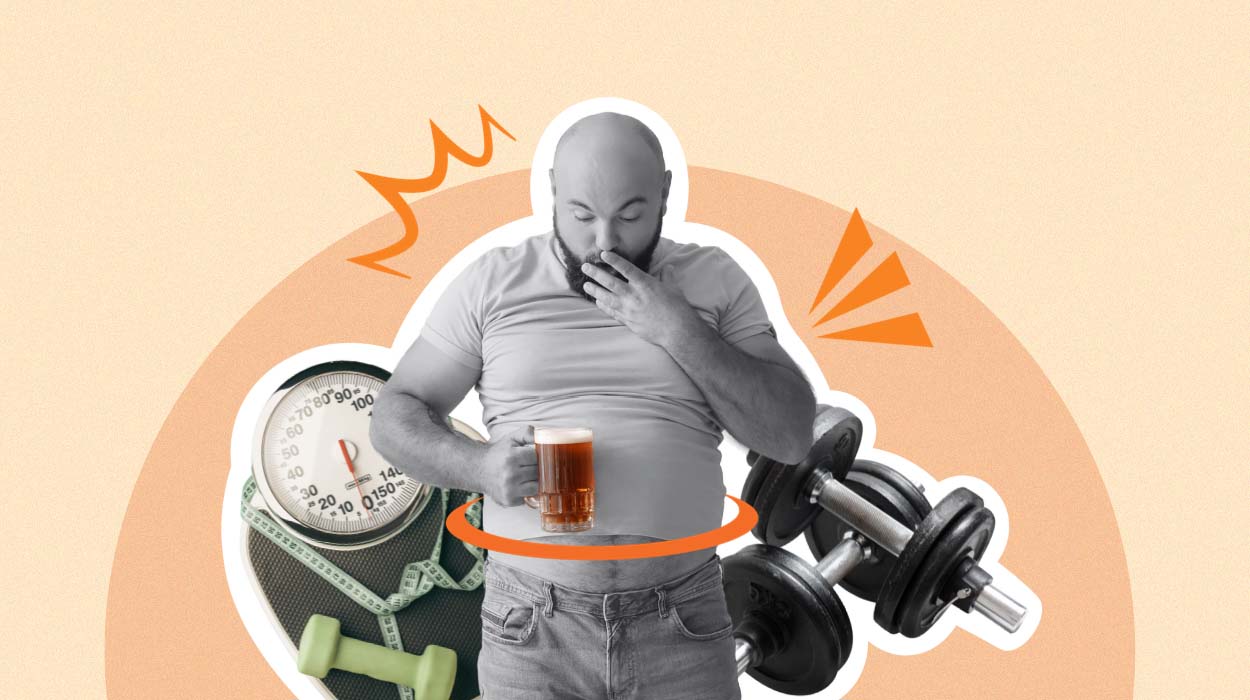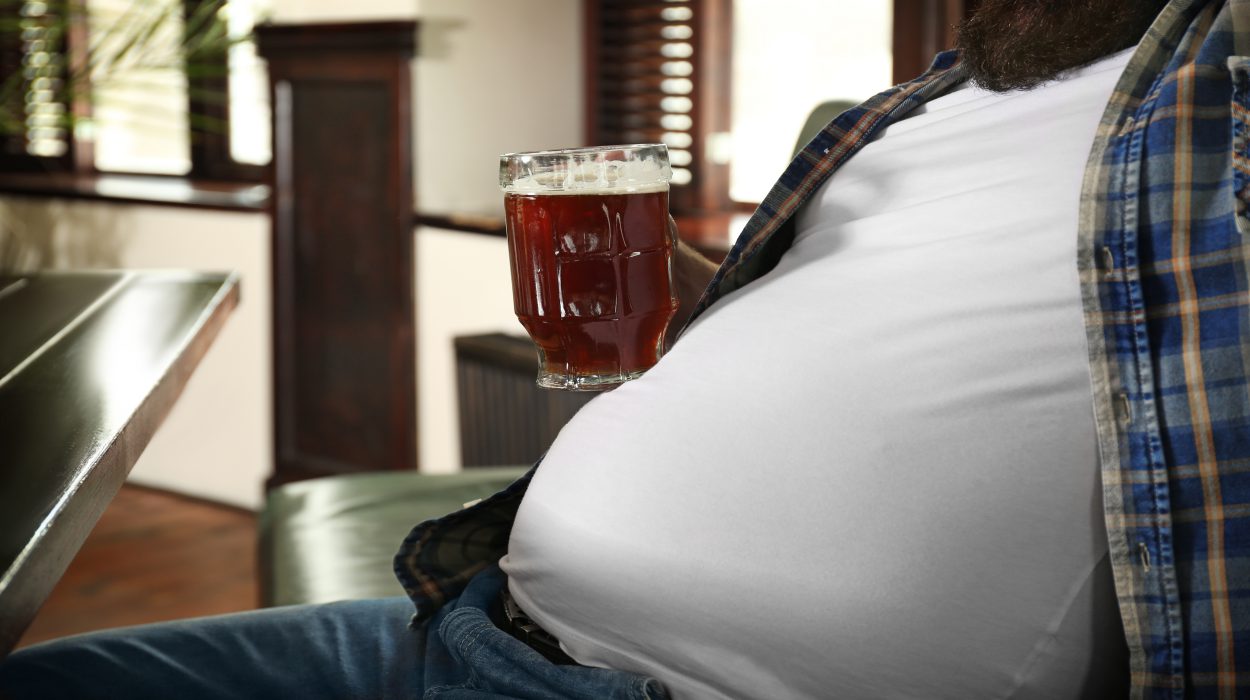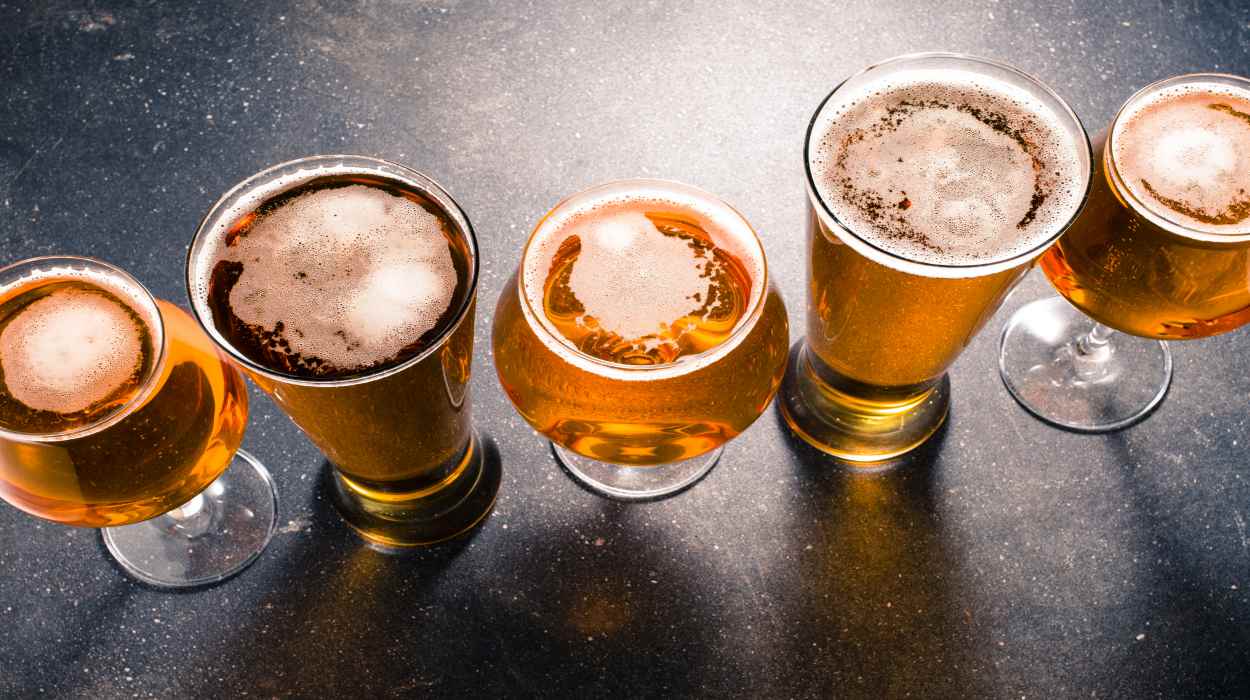
Are you tired of feeling self-conscious about your protruding abdomen, also known as a beer belly? It’s no secret that excess belly fat can not only affect your physical appearance but also have a negative impact on your health. However, with the right diet and exercise plan, you can get rid of that stubborn beer belly once and for all. The key is to focus on reducing overall body fat while targeting the abdominal area through specific exercises. In this article, we will provide you with the best tips on how to lose belly fat, including the most effective diet and exercise strategies. We will also delve into the science behind beer bellies, including the role of alcohol consumption[1] and hormonal changes in fat storage.
So, whether you’re looking to improve your health, feel more confident in your appearance, or want to fit into your favorite pair of jeans again, read on to discover how to get rid of your beer belly for good.
Best Ways To Get Rid Of Beer A Belly
List of steps to get rid of beer belly[2]:
- Reduce overall body fat
- Follow a healthy diet
- Reduce alcohol intake
- Engage in high-intensity interval training (HIIT)
- Incorporate strength training
- Focus on core exercises
- Get enough sleep
- Reduce stress
- Drink plenty of water
By incorporating these steps into your lifestyle, you can effectively reduce and eliminate beer belly.
How To Get Rid Of Beer Belly Quick?

Eat More Healthily
- Reduce calorie intake: Consuming fewer calories than the body needs will help you lose body weight, including from the beer belly. A daily calorie deficit of 500-1000 calories can help lose 1-2 pounds per week.
- Eat nutrient-rich foods: Fruits, vegetables, lean protein, whole grains, and healthy fats should form the basis of a healthy diet to provide essential nutrients while keeping calories in check.
- Avoid processed foods: Foods high in sugar, unhealthy fats, and refined carbs can lead to weight gain, particularly in the abdominal region. Limiting or avoiding them is recommended.
- Limit alcohol intake: Cutting back on beer and other alcoholic beverages is crucial to losing the beer belly. Alcohol is high in calories and can contribute to abdominal fat accumulation.
Make An Extra Workout
- Engage in high-intensity interval training[3] (HIIT): This form of exercise alternates short periods of intense activity with less intense recovery periods. It can help burn fat and calories, including from the belly region, and boost metabolism.
- Include strength training: Building muscle mass can increase metabolism and help burn more calories, even at rest. Exercises that target the core muscles, such as planks and crunches, can also help tone the abdominal muscles.
- Increase overall physical activity: Incorporating more physical activity into daily life, such as taking the stairs instead of the elevator or walking instead of driving short distances, can help burn extra calories and reduce belly fat.
- Get enough sleep: Sleep deprivation has been linked to weight gain and an increased risk of obesity, including abdominal fat accumulation. Getting seven to eight hours of quality sleep per night is recommended.
Other Tips
- Stay hydrated: Drinking plenty of water can help reduce bloating and promote weight loss.
- Manage stress: Chronic stress can contribute to weight gain, particularly in the belly region. Finding ways to manage stress, such as through meditation or yoga, can be helpful.
- Consult a healthcare professional: In some cases, medical conditions or medications can contribute to abdominal fat accumulation. A healthcare professional can help identify and address any underlying issues.
Causes Of A Beer Belly

- Alcohol consumption[4]: You drink alcohol too much, particularly beer, which can lead to weight gain, particularly around the midsection.
- Excess calorie consumption: Consuming more calories than the body needs, especially from unhealthy sources like fried foods and sugary drinks, can lead to fat accumulation in the abdominal area.
- Lack of exercise: A sedentary lifestyle can contribute to the accumulation of excess fat, particularly around the midsection.
- Hormonal changes: As men age, their testosterone levels decline, which can contribute to fat accumulation around the midsection.
- Genetics: Some people may be genetically predisposed to accumulating fat around their midsection.
- Stress: Chronic stress can lead to weight gain, particularly around the midsection, as the body releases cortisol, a stress hormone that contributes to fat accumulation.
It’s important to note that a beer belly[5] is not solely caused by drinking beer but rather by an overall unhealthy lifestyle. By making healthy lifestyle changes, such as exercising regularly, eating a healthy diet, reducing stress, and limiting alcohol intake, you can reduce and eliminate a beer belly.
How Long Will It Take To Reduce Belly Fat?
The time it takes to reduce belly fat can vary depending on factors[6] such as starting weight, age, gender, genetics, and lifestyle habits. It’s important to keep in mind that there is no magic bullet for losing belly fat and that a combination of a healthy diet and regular exercise is the most effective way to achieve sustainable results. That being said, a safe and realistic rate of weight loss is about 1-2 pounds per week. So, if someone is aiming to lose belly fat, they can expect to see noticeable results in a few weeks to a few months, depending on how much weight they have to lose. However, it’s important to focus on long-term habits and lifestyle changes rather than quick fixes or crash diets to maintain a healthy weight and reduce the risk of chronic diseases associated with excess belly fat.
Other Tips To Lose Weight
Apart from the specific tips mentioned to lose belly fat, there are various other general tips that can help you reduce weight and improve your overall health:
- Practice mindful eating: Focus on your food while eating, avoid distractions, and eat slowly to savor your food. This can help prevent overeating and aid in digestion.
- Stay hydrated: Drinking enough water helps regulate your metabolism and aid in reducing body weight.
- Get enough sleep: Aim for at least 7-8 hours of sleep per night to allow your body to rest and recover and avoid fatigue and overeating.
- Reduce stress: High levels of stress can contribute to weight gain, so find ways to manage stress, such as practicing yoga, meditation, or deep breathing exercises.
- Incorporate physical activity into your daily routine: Aim for at least 30 minutes of moderate physical activity most days of the week, such as brisk walking, cycling, or swimming.
- Limit processed and high-fat foods: These foods are often high in calories and low in nutrients, which can contribute to weight gain.
- Seek professional guidance: Consult with a registered dietitian or certified personal trainer to get personalized advice and guidance on weight loss and exercise.
Conclusion
In conclusion, a beer belly or excess abdominal fat can lead to serious health problems such as heart disease, diabetes, and high blood pressure. It is important to take steps to reduce belly fat through a combination of healthy eating habits, regular exercise, and other lifestyle changes. Incorporating whole foods, lean proteins, and fiber-rich fruits and vegetables can aid in weight loss while limiting processed and high-calorie foods can help reduce excess calories.
High-intensity interval training (HIIT), strength training, and aerobic exercise can help burn calories and build muscle, ultimately leading to a reduction in belly fat. While there is no set timeline for losing belly fat, consistent effort and dedication to a healthy lifestyle can lead to long-term success. By incorporating these tips and making small, sustainable changes to daily habits, it is possible to achieve a healthy weight and reduce the risk of chronic health conditions associated with excess belly fat.
Frequently Asked Questions
A beer belly is a protruding belly caused by the accumulation of fat in the abdominal area, often associated with excessive alcohol consumption and an unhealthy diet.
While exercise is crucial to losing belly fat, it is not enough to achieve significant weight loss. A combination of exercise and a healthy diet is necessary to see results.
A diet rich in fruits, vegetables, lean proteins, and whole grains can help reduce belly fat. Avoiding processed and high-calorie foods, as well as reducing alcohol consumption, can also be effective.
Alcohol consumption in moderation, such as one drink per day for women and two drinks per day for men, is generally considered safe and may not lead to significant weight gain. However, excessive alcohol consumption can contribute to belly fat accumulation.
While targeted exercises such as crunches can help strengthen abdominal muscles, they will not specifically reduce belly fat. A combination of cardiovascular exercise and a healthy diet is necessary for overall weight loss.
Chronic stress can increase levels of the hormone cortisol, which can lead to an increase in belly fat. Managing stress through techniques such as meditation, exercise, or therapy can help reduce belly fat.
Genetics can play a role in where the body stores fat, including the abdominal area. However, lifestyle factors such as diet and exercise can still significantly impact belly fat accumulation.
+ 6 Sources
Tnhealth has strict sourcing guidelines and relies on peer-reviewed studies, academic research institutions, and medical associations. We work mostly with peer-reviewed studies to ensure accurate information. We avoid using tertiary references. You can learn more about how we ensure our content is accurate and current by reading our editorial policy.
- Schütze M, Schulz M, Steffen A, et al. Beer consumption and the “beer belly”: scientific basis or common belief?. European Journal of Clinical Nutrition. 2009;63(9):1143-1149. doi:https://doi.org/10.1038/ejcn.2009.39
- Trius-Soler M, Vilas-Franquesa A, Tresserra-Rimbau A, et al. Effects of the Non-Alcoholic Fraction of Beer on Abdominal Fat, Osteoporosis, and Body Hydration in Women. Molecules. 2020;25(17). doi:https://doi.org/10.3390/molecules25173910
- van Gemert WA, Peeters PH, May AM, et al. Effect of diet with or without exercise on abdominal fat in postmenopausal women – a randomised trial. BMC Public Health. 2019;19(1). doi:https://doi.org/10.1186/s12889-019-6510-1
- Schröder H, Morales-Molina JA, Bermejo S, et al. Relationship of abdominal obesity with alcohol consumption at population scale. European Journal of Nutrition. 2007;46(7):369-376. doi:https://doi.org/10.1007/s00394-007-0674-7
- Ryu M, Kimm H, Jo J, Lee SJ, Jee SH. Association between Alcohol Intake and Abdominal Obesity among the Korean Population. Epidemiology and Health. 2010;32:e2010007. doi:https://doi.org/10.4178/epih/e2010007
- Boutcher SH. High-Intensity Intermittent Exercise and Fat Loss. Journal of Obesity. 2011;2011:1-10. doi:https://doi.org/10.1155/2011/868305







 By
By 

 By
By 
 By
By 